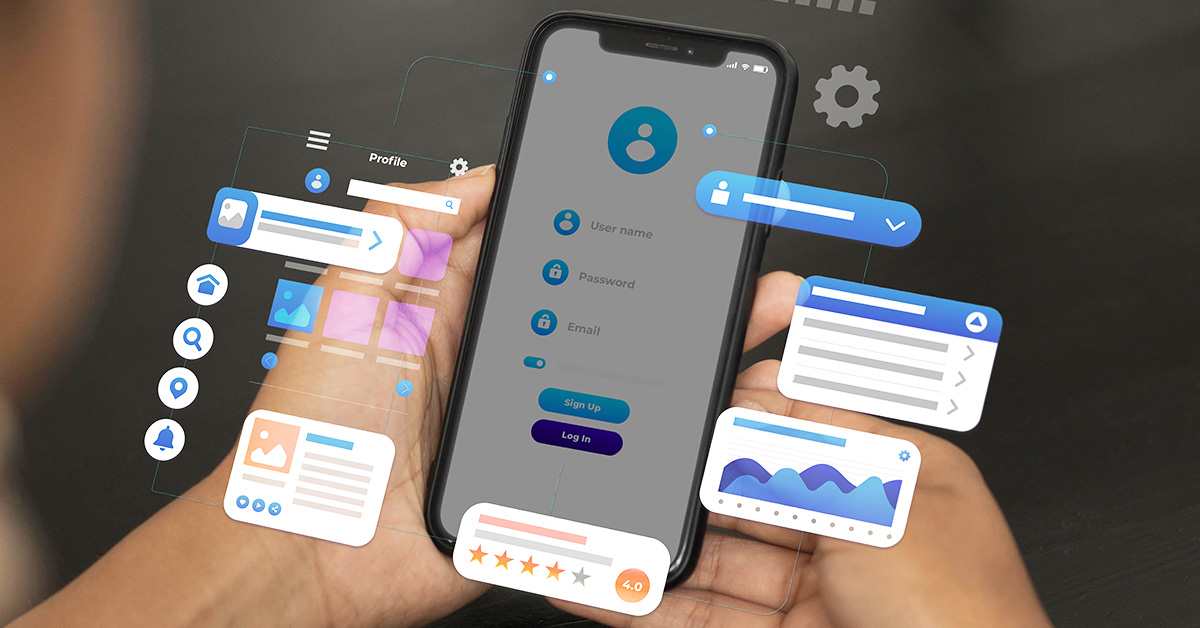
Top 10 Advantages Of Mobile Apps For Business
In today’s digital age, establishing an online presence is not just beneficial but essential, and mobile applications have become crucial instruments in the business landscape. If your company hasn’t embraced this trend yet, introducing a mobile app could significantly enhance engagement with users who prioritize mobile usage, thereby boosting the sales of your products or services.
Recent studies, including one by data.ai, In Southeast Asia, the engagement with mobile apps is notably robust. Indonesia stands out with users spending an average of 5.7 hours daily on apps, followed by Singapore at 5.3 hours. This trend is also strong in countries like India and Thailand. Moreover, the region shows vigorous activity in app downloads, with India recording about 29 billion in 2022, and Pakistan experiencing a notable annual growth of 35% in app downloads. This shift towards mobile platforms is transforming the shopping habits of consumers, significantly influencing their purchasing decisions and, consequently, impacting businesses.
However, the decision to develop a mobile app should not be taken lightly. It’s crucial to carefully consider the advantages and determine whether it aligns with your business objectives at the current stage. To make an informed decision, delve into this guide, which outlines the myriad benefits that mobile apps can offer to your business
1. Building Brand Recognition

Developing a mobile application can significantly fortify your business’s brand presence. A thoughtfully crafted app goes beyond mere functionality, it serves as a continual representation of your brand, keeping it prominent and memorable for your users.
Moreover, a mobile app isn’t just a tool for reinforcing your brand among customers, it’s also a valuable source of insights. By analyzing data collected through the app, you gain a deeper understanding of your target audience, enabling you to refine and adapt your brand strategy accordingly.
2. Personalized Experience
Mobile apps offer a unique, personalized environment where user preferences shape the experience. Businesses can analyze customer behavior to fine-tune their offerings, leading to a more engaging and fulfilling user interaction.
Features such as push notifications streamline communication with customers. These timely updates keep your audience informed about recent offers, new product launches, and important news, thereby reinforcing the relationship between the business and its clientele.
3. Improved Customer Engagement and Interactions

Mobile apps open up new avenues for businesses to interact and engage with their customers more effectively. With a mobile app, customers have the convenience of accessing your services or products anytime, anywhere, which significantly enhances user accessibility and convenience. Features such as in-app messaging, support chats, and feedback forms provide direct lines of communication, making it easier for customers to reach out with inquiries, suggestions, or concerns. This immediate, on-the-go interaction fosters a sense of connection and responsiveness, leading to increased customer satisfaction and loyalty.
4. Increased Sales
Mobile apps streamline the purchasing journey, offering the ease of in-app transactions and the allure of exclusive in-app promotions. This not only simplifies the shopping experience but also broadens your customer reach, potentially boosting your sales figures.
5. Valuable Customer Insights
Mobile applications are rich sources of user data, providing deep insights into consumer behaviour, preferences, and trends. Leveraging this information allows your company to make informed, data-driven decisions and tailor your strategies for better results.
6. Enhanced Marketing Channel and Strategist
Launching your app on platforms like the App Store and Google Play introduces your business to an expansive new market. It makes your app readily accessible to both iOS and Android users, greatly expanding your reach.
Make the most of the extensive data collected through your app for precise, targeted advertising. Seamlessly integrating your app with social media platforms can also significantly broaden your marketing reach and deepen your engagement with the community, encouraging active participation and feedback from users.
7. Remain Accessible 24×7
A mobile app ensures your business is accessible at any time, from anywhere. It provides a constant, convenient touchpoint for customers to interact with your brand, shop, or seek support, enhancing user experience and satisfaction.
8. Competitive Edge
In a saturated market, a distinctive, user-friendly app can significantly differentiate your business. Offering innovative features not readily available with your competitors can capture the interest of potential customers and solidify your market position.
9. Improve Customer Loyalty and Retention
Mobile apps encourage repeat business by offering loyalty programs, rewards, and app-exclusive features that keep customers coming back. Building a robust membership base within your app can significantly amplify this effect. By creating a sense of exclusivity and value through members-only content, special discounts, and personalized experiences, you foster a loyal community. This not only incentivizes frequent interaction but also turns your users into brand ambassadors who are likely to recommend your app to others.
10. Scalability and Growth
As your business expands, your app can evolve to match its growth. It’s designed to accommodate new features, support an increasing number of users, and adapt to emerging market demands, ensuring your business continues to thrive and scale effectively.
Conclusion
In conclusion, making your own app can really help your business grow. It’s more than just a tool, it’s a smart way to make your brand stronger, understand your customers better, reach more people, and keep your customers coming back. In essence, mobile apps are not just a trend but a fundamental business tool for improving service, driving sales, and staying competitive in today’s market. To explore the costs of mobile app development in Malaysia, consider reading further in this article for comprehensive pricing details.




